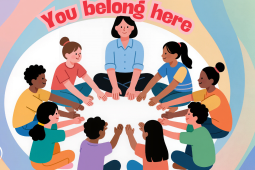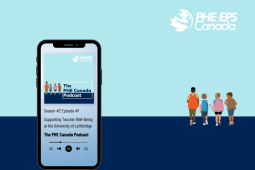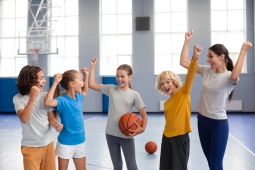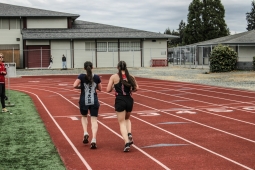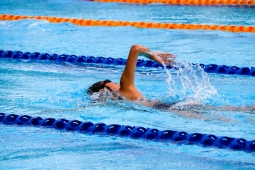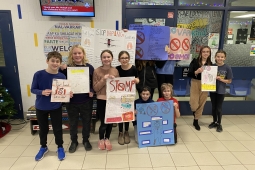Resources for More Engaging PE Programs
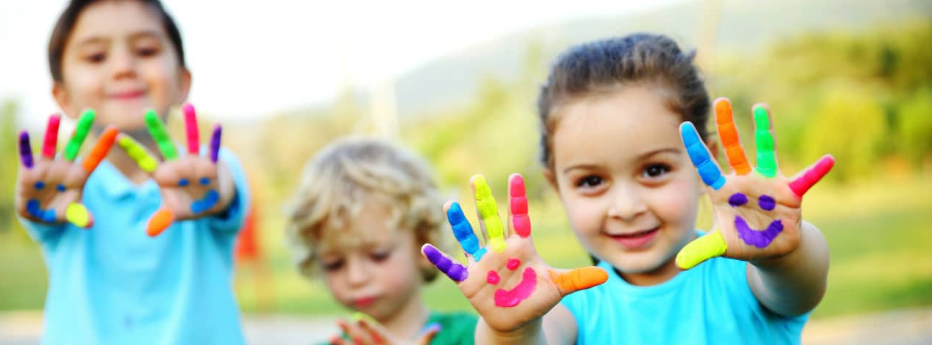
Previously published in Volume 84, Issue 1
Ensure your students are receiving the very best physical activity and physical and health education programming designed to be inclusive, fun and support the development of the whole child. The following programs are just some of the resources available at phecanada.ca.
Move Think Learn Series
The Move Think Learn Series supports physical activity leaders and teachers working with children and youth approximately 8-14 years of age (grades 4-9) to develop their physical literacy – knowledge, confidence, and competence – through unique, inclusive and fun activities.

Using a Teaching Games for Understanding (TGfU) approach, children work through tactical gameplay problems, think through options and skills and learn how to apply this learning to broader gameplay situations.
In partnership with the associated National Sport Organizations, the Move Think Learn Series offers the following sport in focus programs:
-
Territory games: Basketball, Football, Hockey, Ringette, Soccer, Team Handball
-
Net and wall games: Badminton, Squash
-
Racing games: Canoe-Kayak, Cycling
-
Striking and fielding games: Cricket, Softball
-
Target games: Archery, Curling
What’s inside? Resource overview
Move
Find activities highlighting different tactical problems relevant to the Teaching Games for Understanding category of the sport in focus. These games can serve as an entry point to a lesson and are designed to help participants understand “what to do” in the context of the game.
Think
Each series of tactical questions relates directly to the preceding Move game, and are intended to engage participants in critical and creative thinking to identify the tactical problem, solutions and associated movement skills. Building on student understanding of “what to do” in the context of the game, this section explores “how to do it”.
Learn
Two games are described in the Learn section, building upon the learnings from the Move games and are intended to engage participants in activities that resemble the mature form of the sport in focus. While playing, students apply solutions to tactical problems and decision-making skills. These games can serve as a culminating game to a lesson or unit.
Fundamental Movement Skills Series
The Fundamental Movement Skills (FMS) Series supports teachers and recreational leaders in teaching fundamental movement and sport skills in an effective, fun and interactive manner.
Providing instructional tips, movement descriptions, assessment checklists, and activities to utilize the motor skills under focus, the FMS Series provides a developmentally appropriate teaching aid to support motor skill development within your children.
The series includes:
- FMS Active Start & FUNdamentals
- FMS Active Start & FUNdamentals – Activity Card Set
- FMS Active Start & FUNdamentals – For Children with Physical Disabilities
- FMS Active Start & FUNdamentals – For Children with Developmental and/or Behavioural Disabilities
- FMS Learning to Train
- FMS Beyond the Fundamentals – A Games Approach
- FMS Alternative Activities and Pursuits
- FMS an Educator’s Guide to Teaching Fundamental Movements
The Ready, Check, Go! Series
The Ready, Check, Go! Series is a physical activity tracker designed to help children and their parents or guardians understand the importance and enjoyment of incorporating regular daily physical activity in ways that suit their personal beliefs and needs.
The Ready, Check, Go! Series includes:
- Participant/student workbook to track physical activity (ages 9-11 and 12-14), and leader/teacher, and parent guides
- Activities to promote the importance of participating in regular physical activity
- Goal setting worksheets to help enhance physical activity behaviours
- Inclusive activities for children of all abilities
Visit phecanada.ca for more information about these and other engaging, effective programs.



